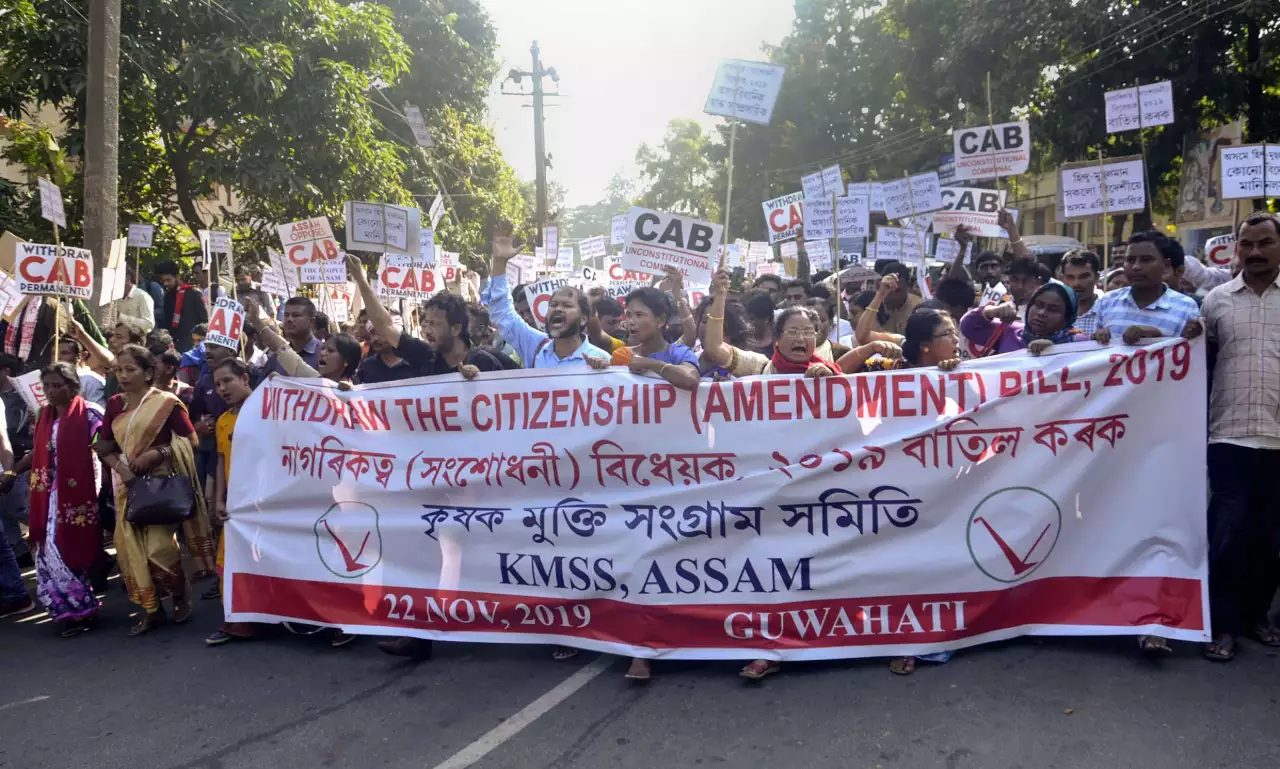CA Bill India. The Citizen (Amendment) Bill (CAB), 2019 has been given a green flag in both the houses of Parliament, and said immigrants who came to India on or before 31st December 2014 will be given citizenship. In the article you will get to know what exactly the bill propose and how it will impact us, if it will at all, and who are the immigrants that will get the citizenship.
Why Is The CA Bill Needed In India?
CA Bill India, 2019, was given a green flag in Lok Sabha late night on Monday, and on Wednesday Rajya Sabha too passed the bill. The bill proposes that citizenship will be given to all the illegal immigrants belonging to religion who have come from Afghanistan, Pakistan, and Bangladesh.
This means, people who have come to India from these countries but are not from the above 6 mentioned religions will not be given Indian citizenship. The bill have given relaxation in the “Citizenship by Naturalisation” period in India. The bill, once it becomes a law, will reduce the duration of residency required for Indian citizenship from 11 years to 5 years for people belonging to the above mentioned 6 religions and 3 countries.
Also Read: Chitkara University Case News Of Fake Incident
Who All Will Be Given Citizenship and Who Won’t Get Citizenship?
CA Bill of India covers 6 religions, Hindu, Buddhist, Parsi, Sikh, Jain, and Christian. However people from these communities will only be given citizenship if they have come from Afghanistan, Pakistan, and or Bangladesh. According to the Citizenship Act, 1955, any illegal immigrant cannot be given citizenship of India wherein an illegal immigrant is defined as a person who entered the country without proper documents or have stayed in India post the permitted time frame.
In the year 2015, the government of India made revisions to the Passport and the Foreigner’s Acts, allowing non-Muslim refugees from the above mentioned 3 countries to stay in India.
However, the major parties sitting in opposition said that CAB is discriminating, as it does not offer citizenship to Muslims who constitutes to almost 15% of India’s population. Amit Shah made two points here, firstly, CAB is not taking away citizenships from anybody it is offering citizenship, the second point he made was, India will only offer citizenship to minorities of those 3 countries who left their countries in fear.
The government said that as Afghanistan, Pakistan, and Bangladesh are all Islamic countries where Muslims are in majority, the Muslims who have come to India cannot be considered as minorities. However the government did not say they will not offer citizenship to those Muslims, their application cases will be examined like any other case.
Why Is The Government Bringing Citizenship Amendment Bill?
Mentioning the partition of India and Pakistan in 1947 were based on religion, now the NDA government argued the lakhs of citizens of then unified India were staying in Pakistan and Bangladesh from 1947. CAB states that the constitution of Afghanistan, Pakistan, and Bangladesh offers to a specific religion, thus resulting in persecution on account of religion faced by people belonging to Hindu, Buddhist, Parsi, Sikh, Jain, and Christian communities.
The bill also says “Some of them also have fears about such persecution in their day-to-day life where right to practice, profess and propagate their religion has been obstructed and restricted. Many such persons have fled to India to seek shelter and continued to stay in India even if their travel documents have expired or they have incomplete or no documents”.
Who Are Opposing And Why CA Bill Is Facing Opposition?
CAB is facing major opposition because people think it violates Article 14 of the Indian Constitution (Right to Equality). Congress, CPI (M), Trinamool Congress, Samajwadi Party, and some other political parties are opposing the bill claiming, citizenship cannot be given with religion takes as basis. Protests have been reported from the North-east especially from Meghalaya, Mizoram, Sikkim, Tripura, Assam, and Manipur for people voicing against the CAB saying that if these illegal immigrants are given citizenship they will becomes permanent resident of the states which will only disturb their demography, culture, and employment opportunities.
Majority of the protestors say that if the bill becomes a law it will nullify Assam Accord of 1985 provisions which fixed 24th March, 1971 as the cut-off date of any and all illegal immigrants regardless of their religion.
Which States Will Be Affected And How Many Immigrants Are There?
Initially the Bill would have affected all the 7 North East states, but with various discussion, the Centre agreed to safeguard the NE (NorthEast) States. “Nothing in this section shall apply to tribal areas of Assam, Meghalaya, Mizoram or Tripura as included in the Sixth Schedule to the Constitution and the area covered under the ‘Inner Line Permit’ notified under the Bengal Eastern Frontier Regulation, 1873”. Indian nationals visiting these places from other states need an “Inner Line Permit” to enter and/or pass through them.
As of now, Mizoram, Nagaland, and Arunachal Pradesh fall under this ILP. It was argued that Manipur is the state that may end up suffering the most if and when CAB is implemented hence, on Tuesday, Amit Shah, Home Minister, said that Manipur will be added to ILP in Lok Sabha.
Additionally, according to the Sixth Schedule of the Constitution tribal areas of Assam, Tripura, Meghalaya and Mizoram will be exempt from CAB exercising the Article 244 on the Indian Constitution, however major protests come from Assam as only 7 out of 33 districts of Assam are safeguarded.
Moreover, according to the records shared by Intelligence Bureau before JPC (Joint Parliamentary Committee) said there are 31,313 people from those 6 minorities who are residing in India of Long Term Visa, and had sought refuge in the country on grounds of fear of religious persecution in their home country. According to the records of Intelligence Bureau the numbers are, 25,447 Hindus, 55 Christians, 2 Buddhists, 5,807 Sikhs, and 2 Parsis.



